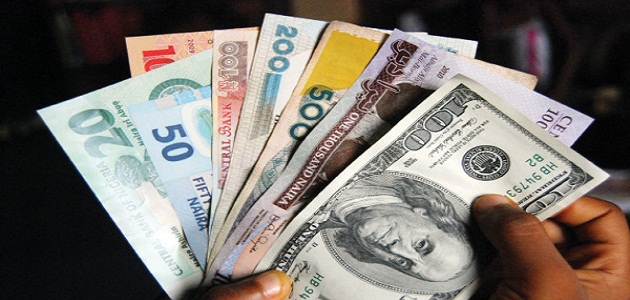Nigeria’s direct remittances gain N1.6trn in 8 months

Nigeria’s direct remittances had recorded a whopping appreciated figure of N1.6 trillion in the space of eight months, considering the estimated balance of N1.8trn or $5.8 billion, in September, compared to N169.5bn or $555million it stood in January this year.
The remittances, which is supervised by the CBN, usually comes from International Money Transfer Operators. (IMTO) and global oil prices’ earnings, at $1/N305, data obtained from the apex bank has revealed.
For instance, the data showed that total N169.5bn or $555m was remitted in January this year, however, declined to N63.89bn or $209.48m in February.
It rebounded to N227.9bn in March or $747.35m, but again dropped to N132.8bn or $435m the following month before rising to N226.7bn or $743m in May, 2017.
The remittances, however, stood at N280.7bn or $920.3m as at the mid of this year; and further increased to N318.9bn or $1bn in the seventh month of the outgoing year.
Although, the remittances recorded a sharp drop of 24 per cent to N242.8bn or $796m in August and eventually closed the ninth month of the year at a more depreciated figure of N116bn or $381m.
The apex bank on its official website, had disclosed that Total direct remittances between 2010 and 2016 rose to estimated N12.1trn or $39.5bn.
As at December 2016, total direct remittances to CBN was at N2.13trn, an increase of 17 per cent from N1.8bn in 2015.
The CBN said, about $3.7bn was the highest peak amount remitted in 2016, precisely December 31, 2016.
The lowest amount remitted was $85.4bn, while for 2015, total remittance hits the peak of $1.13bn.
The CBN, in 2016, had licensed 11 additional international money transfer operators.
Total remittance to CBN in 2014, however, was N2.49trn, the highest amount remitted to the apex bank in the six years under consideration, while in 2013, it was at N694bn, the lowest amount remitted to CBN.
Further findings by The Daily Times revealed that N1.4trn and N1.72trn was total amount remitted to CBN in 2012 and 2011, respectively. In addition, N1.78trn was the total amount remitted to CBN in 2010.
The total direct remittance recorded the highest inflow in 2010 and 2011 with 29 and 25 days of remittance.
The CBN had mandated financial service providers to be duly licensed in order to protect customers and the financial system, adding that international money transfer operators are required to remit foreign currency to their agent banks in Nigeria for disbursement in Naira to beneficiaries.
The CBN said that interested applicants should forward their request for licensing under the CBN 2014 Guidelines on International Money Transfer Services in Nigeria.
World Bank, in a report, disclosed that remittances to developing countries fell for a second consecutive year in 2016, a trend not seen in three decades.
According to the World Bank report, an improved global economic outlook, remittances to developing countries are expected to recover this year, growing by an estimated 3.3 per cent to $444bn in 2017.
The report by the Bank said, “The global average cost of sending $200 remained flat at 7.45 per cent in the first quarter of 2017, although this was significantly higher than the Sustainable Development Goal (SDG) target of three per cent. Sub-Saharan Africa, with an average cost of 9.8 per cent, remains the highest-cost region.
“A major barrier to reducing remittance costs is de-risking by international banks, when they close the bank accounts of money transfer operators, in order to cope with the high regulatory burden aimed at reducing money laundering and financial crime.
“Remittance flows to Sub-Saharan Africa declined by an estimated 6.1 per cent to $33bn in 2016, due to slow economic growth in remittance-sending countries; decline in commodity prices, especially oil, which impacted remittance receiving countries; and diversion of remittances to informal channels due to controlled exchange rate regimes in countries such as Nigeria. Remittances to the region are projected to increase by 3.3 per cent to $34bn in 2017,” the report added.
Meanwhile, the price of Organization of Exporting Countries’ (OPEC’s) basket of 14 crude countries gained 14 per cent to $60.73 per barrel as at December 6, 2017, from $53.3 it started trading early this year.
Motolani Oseni








